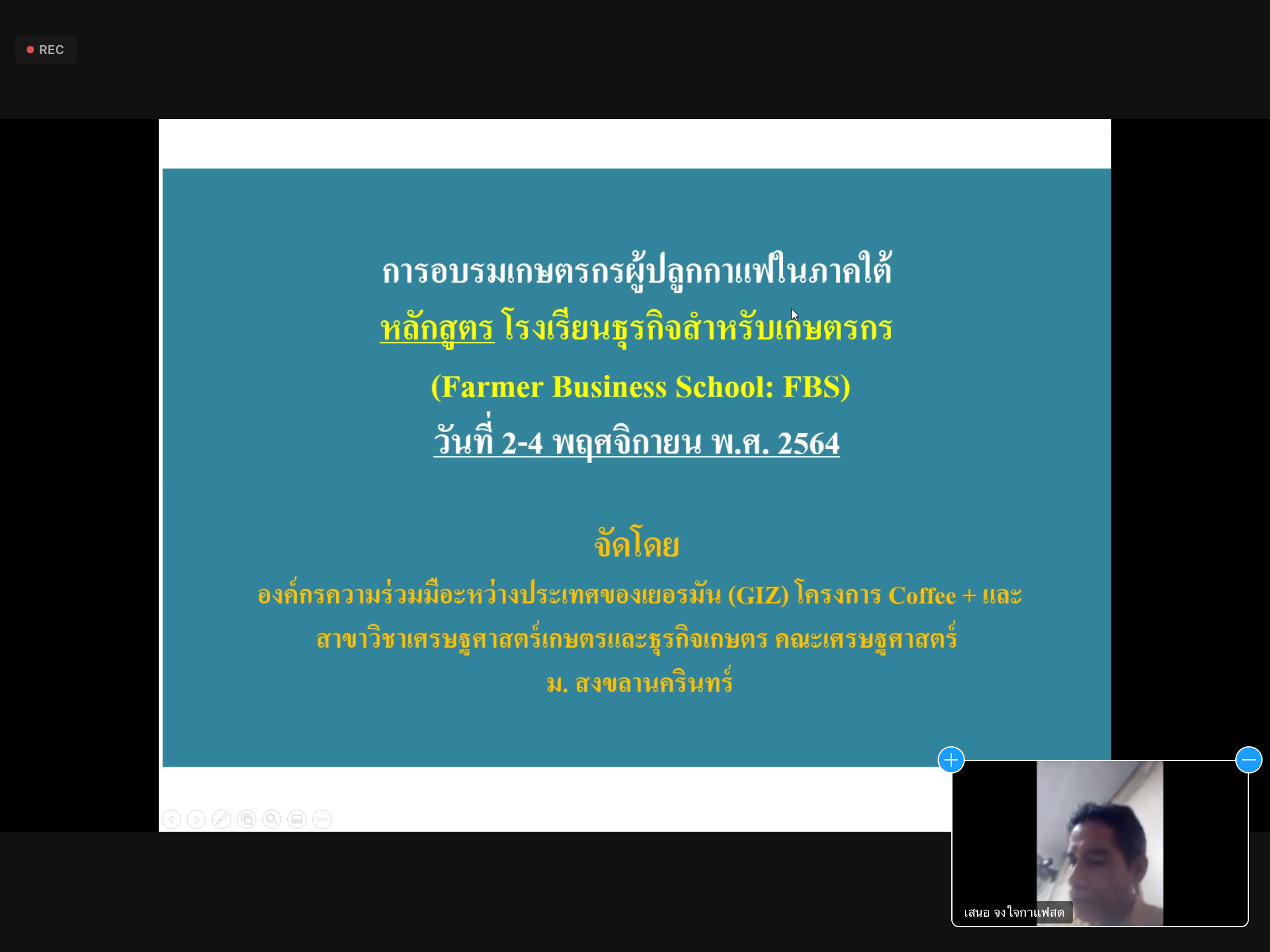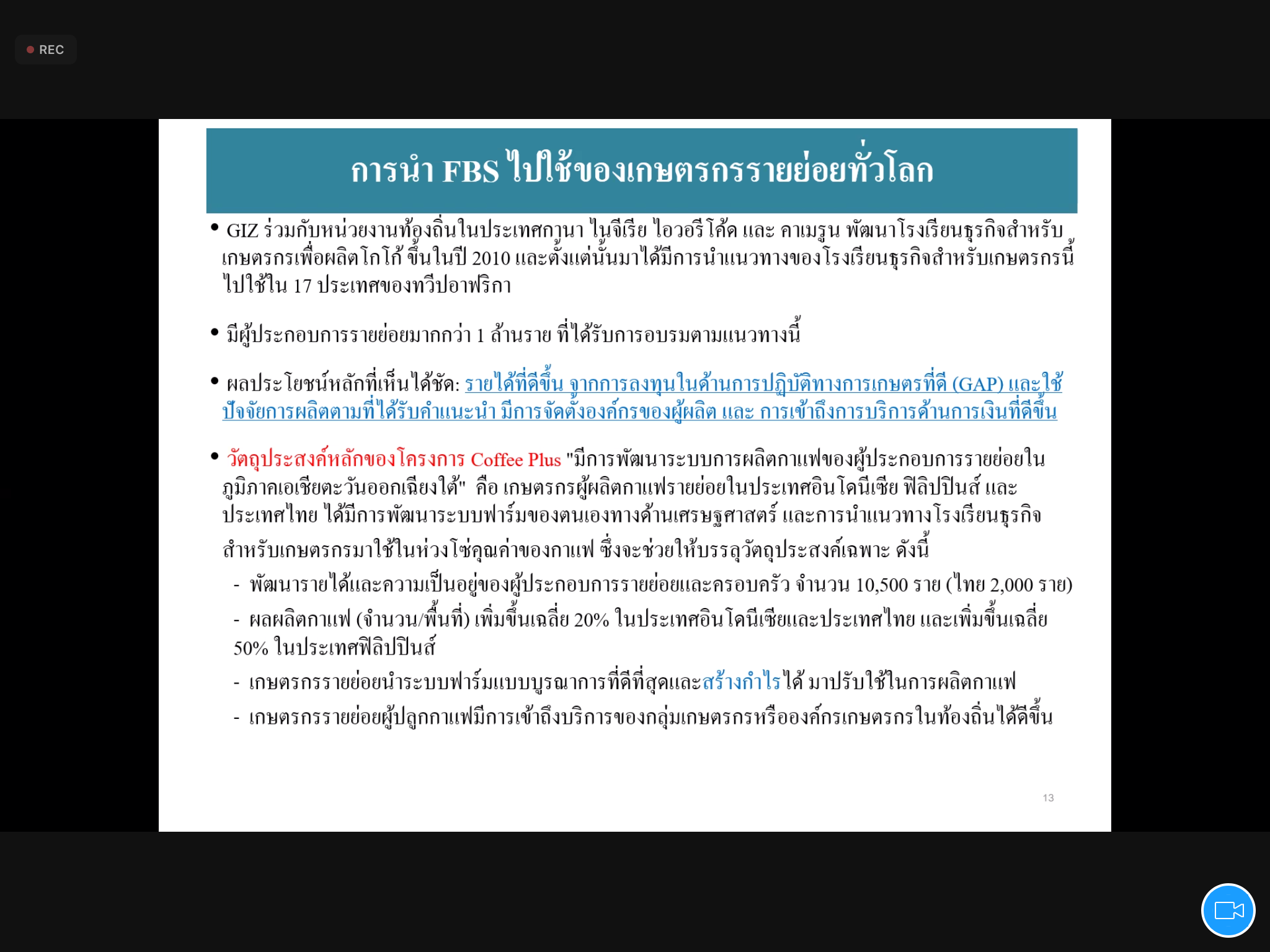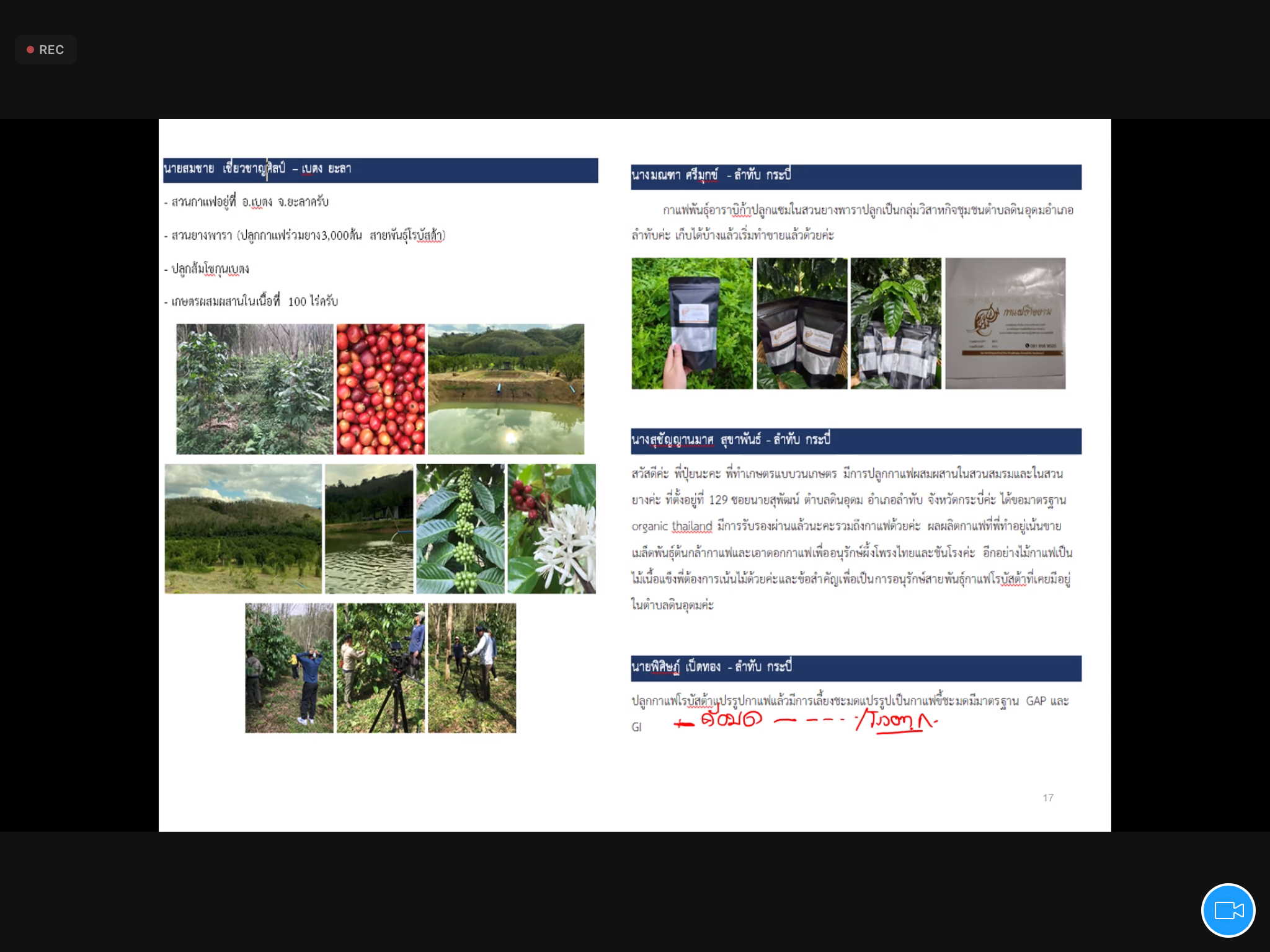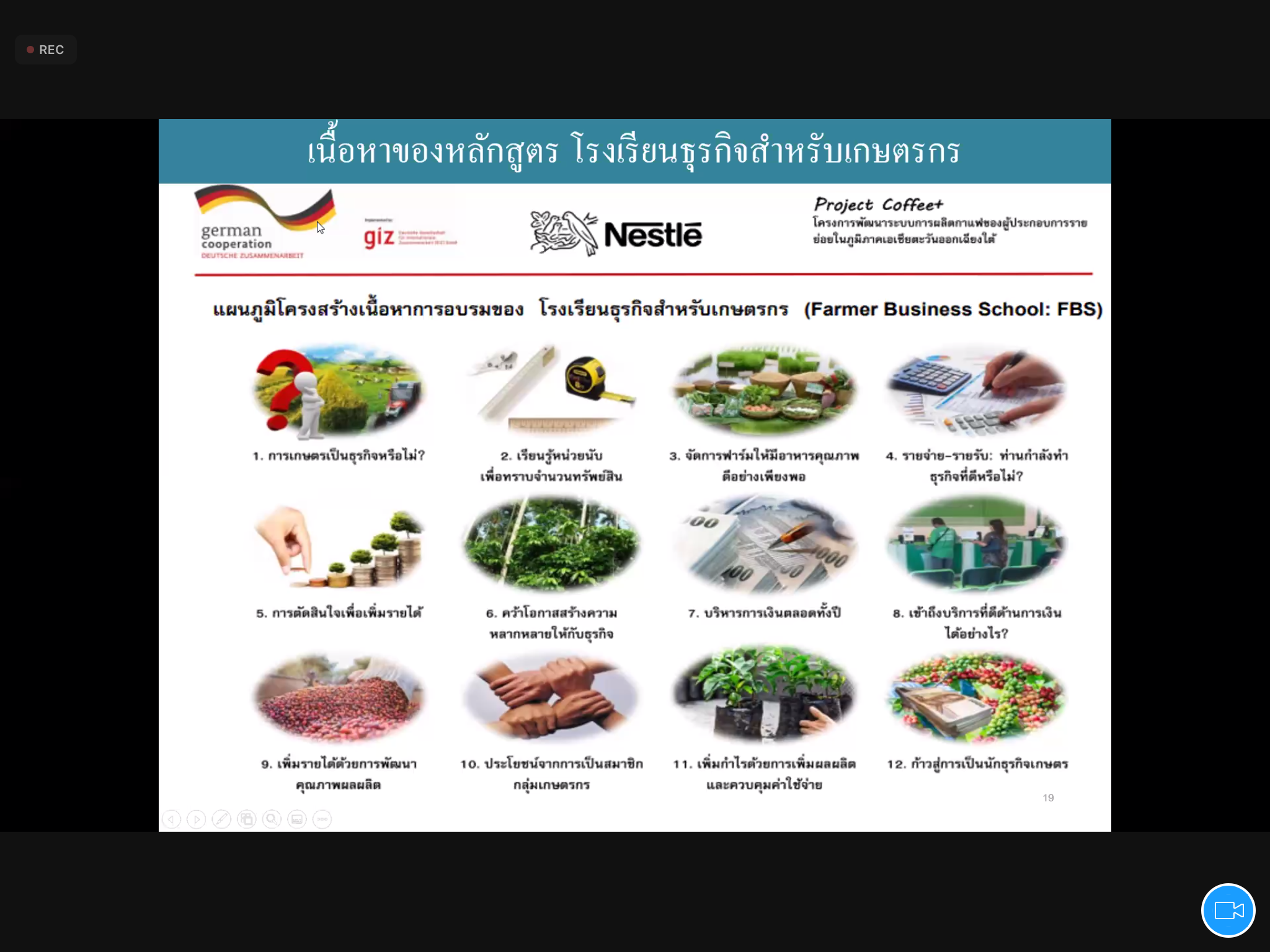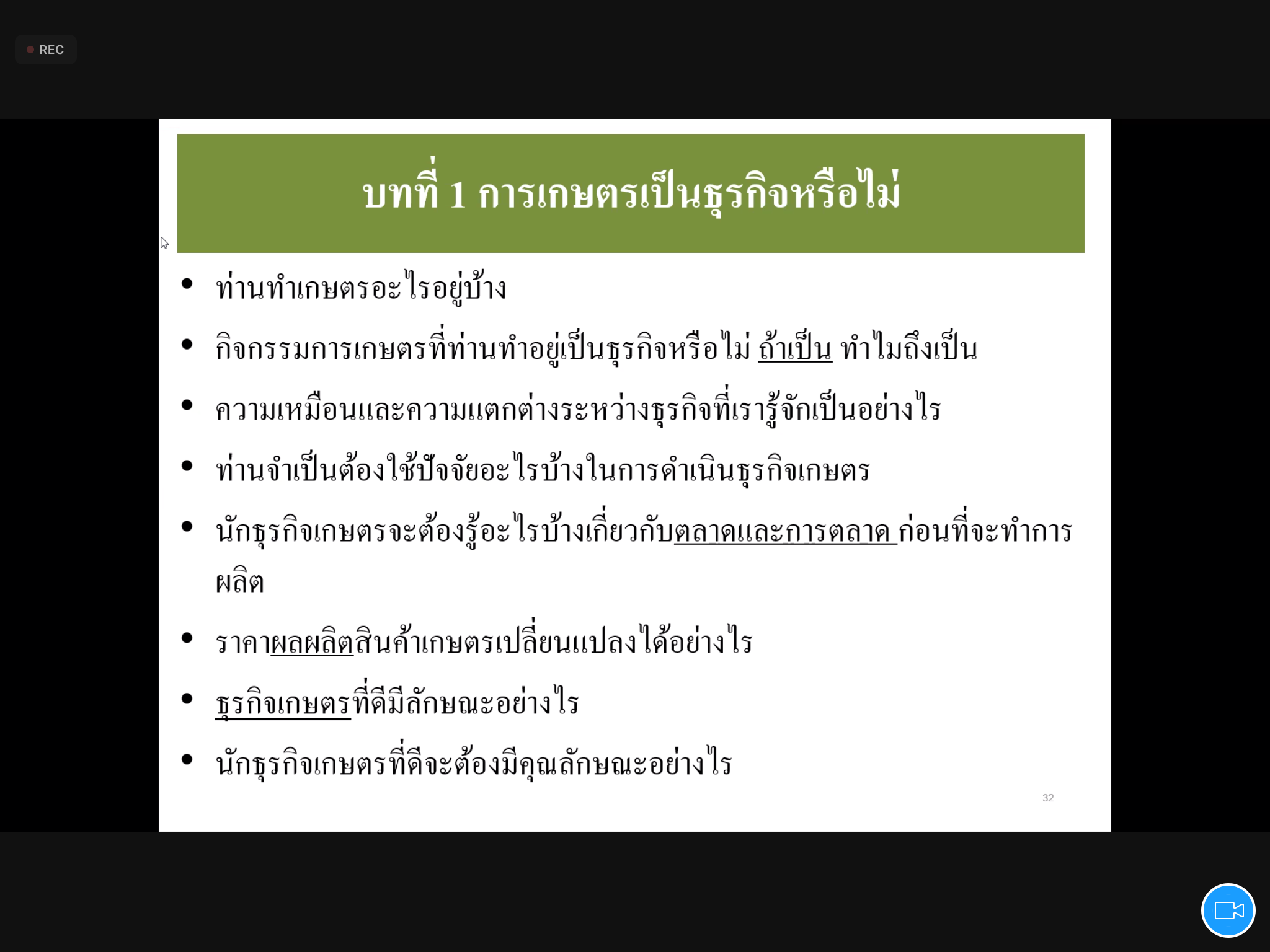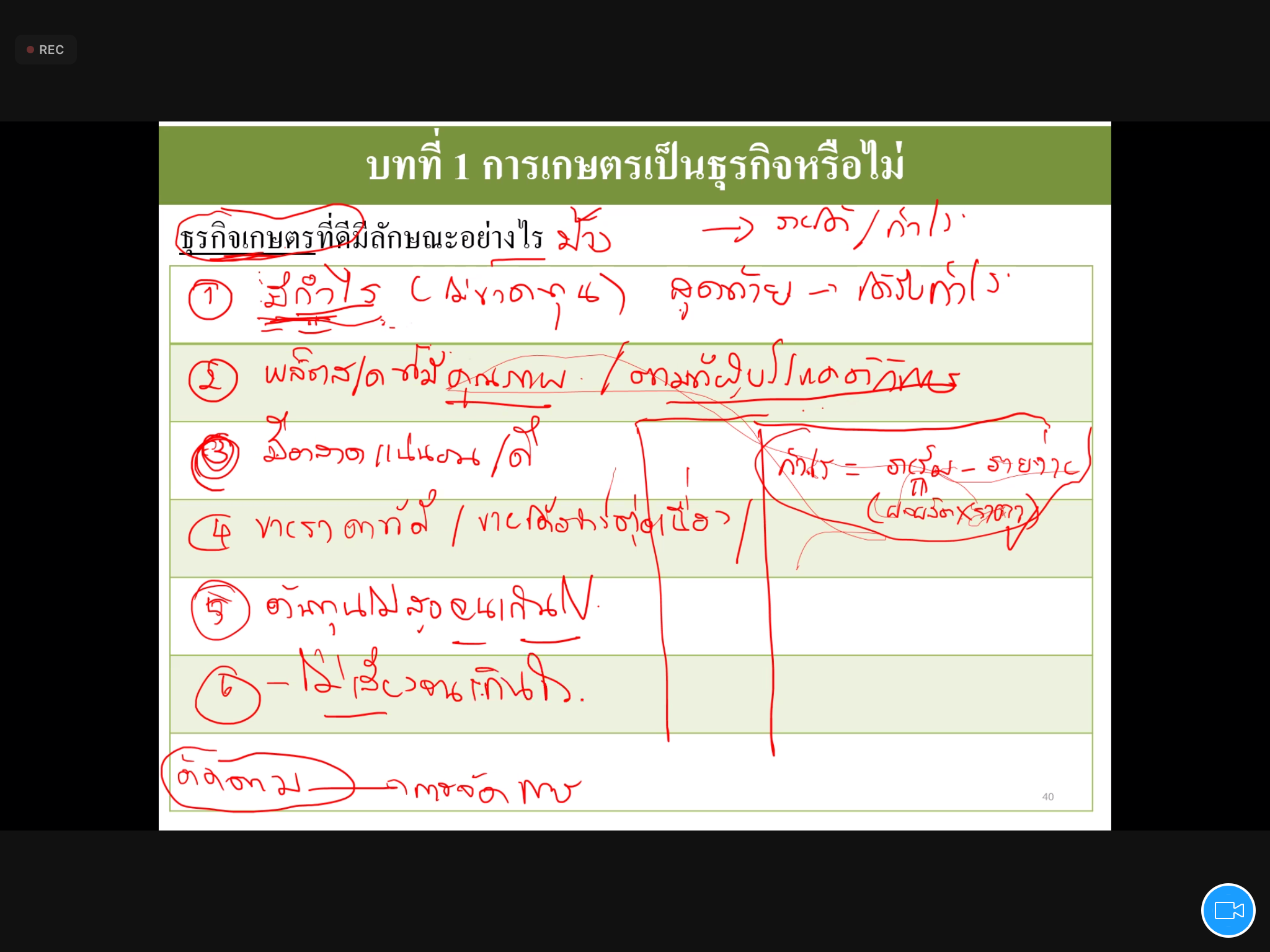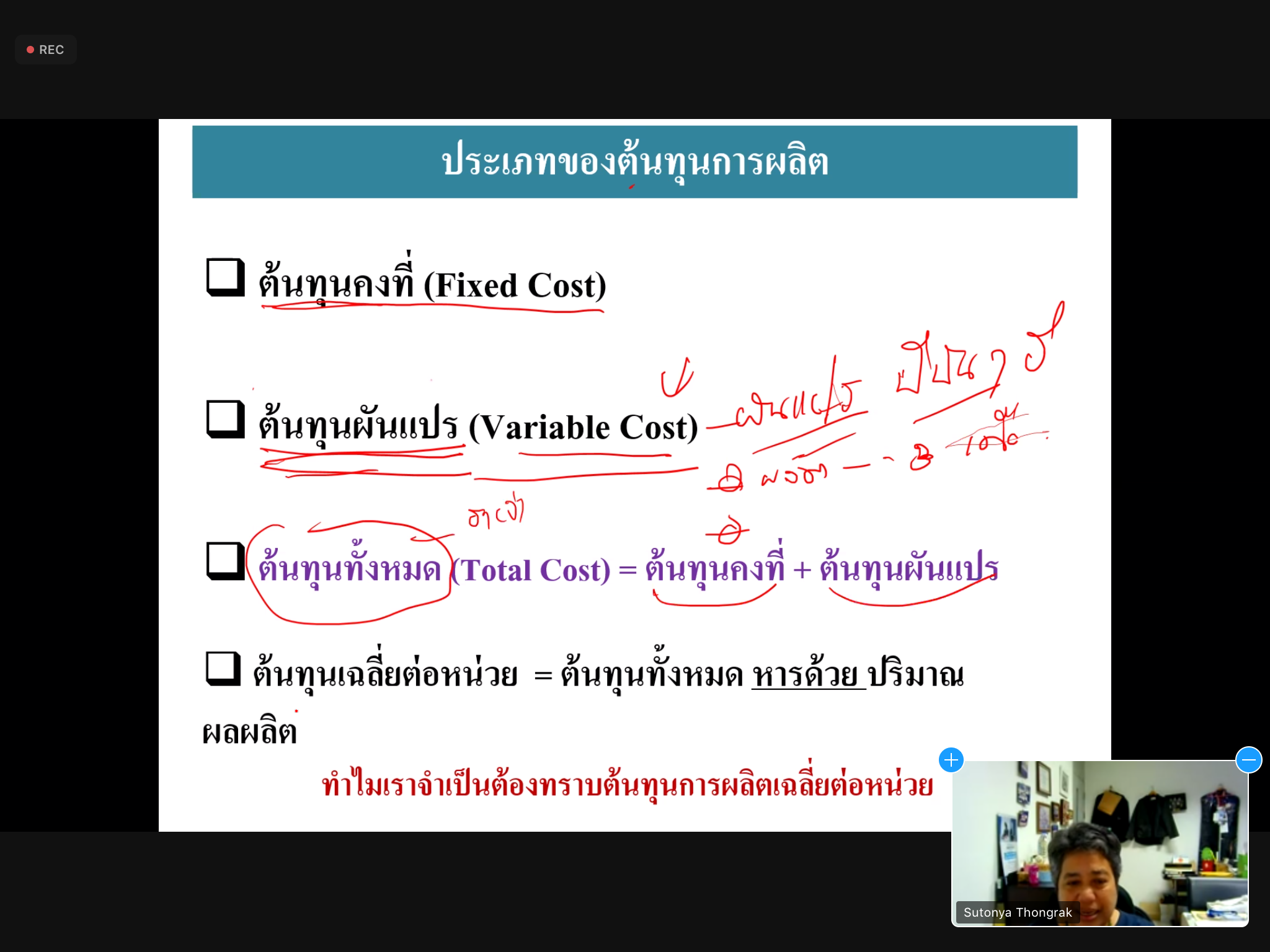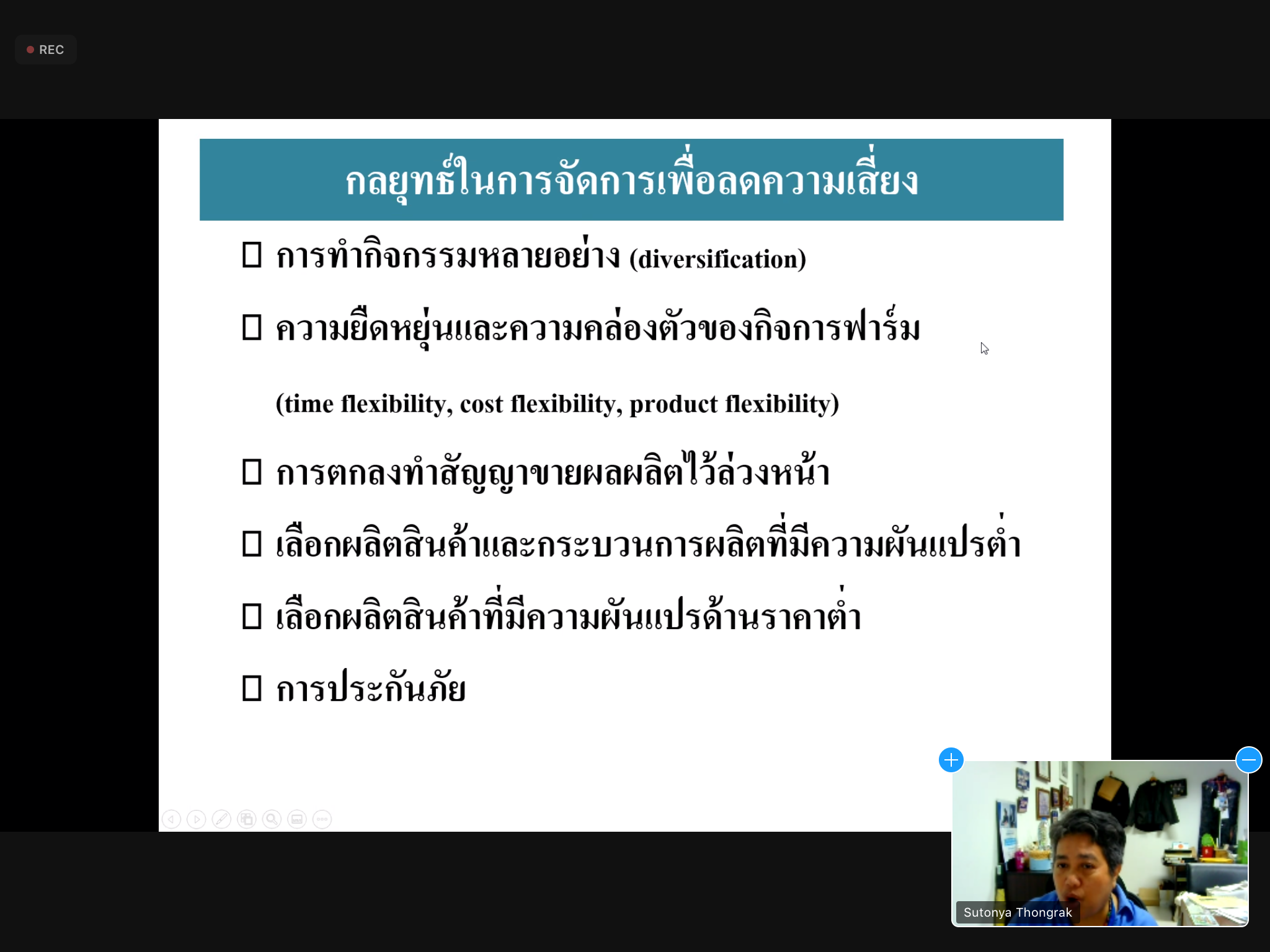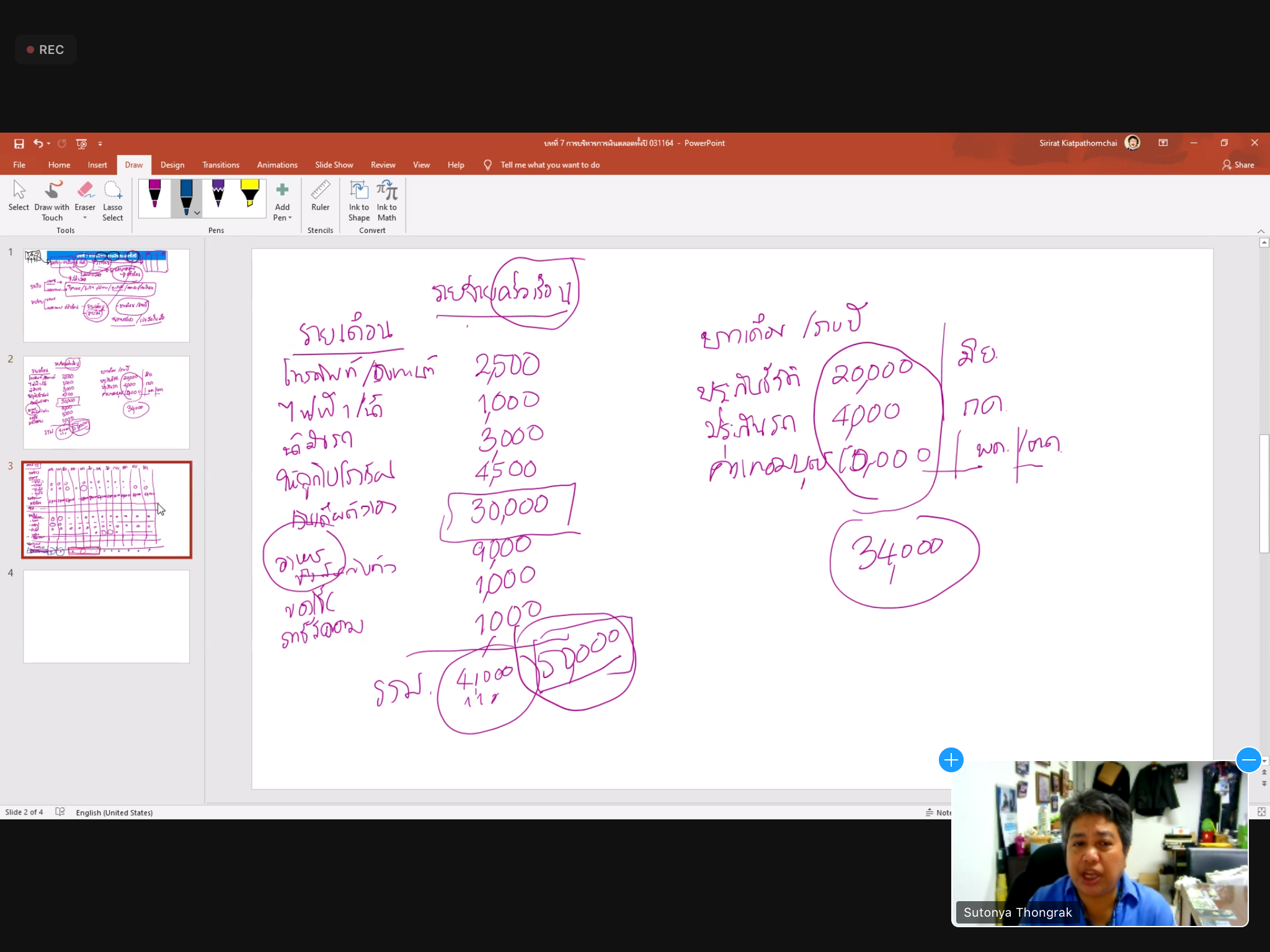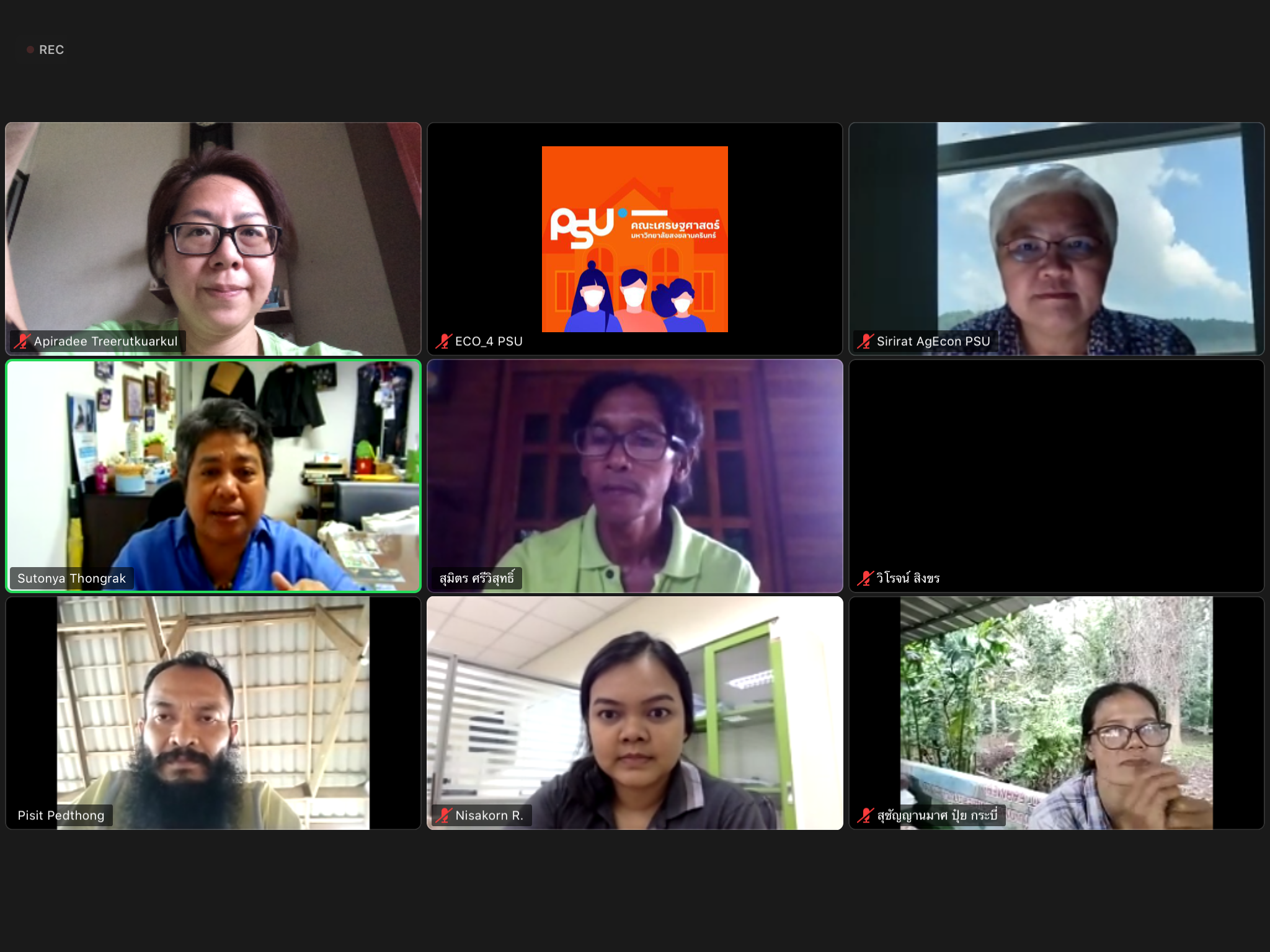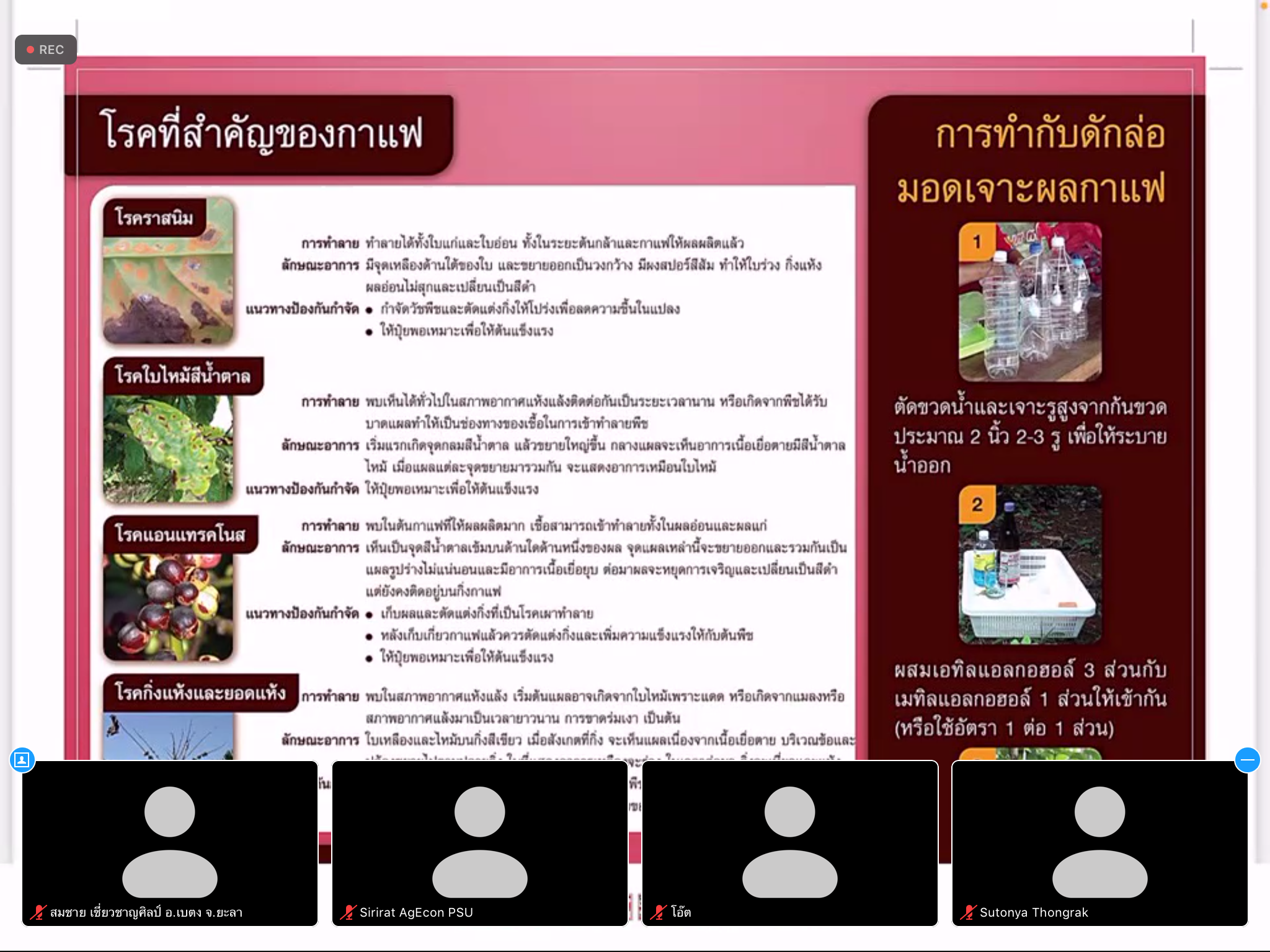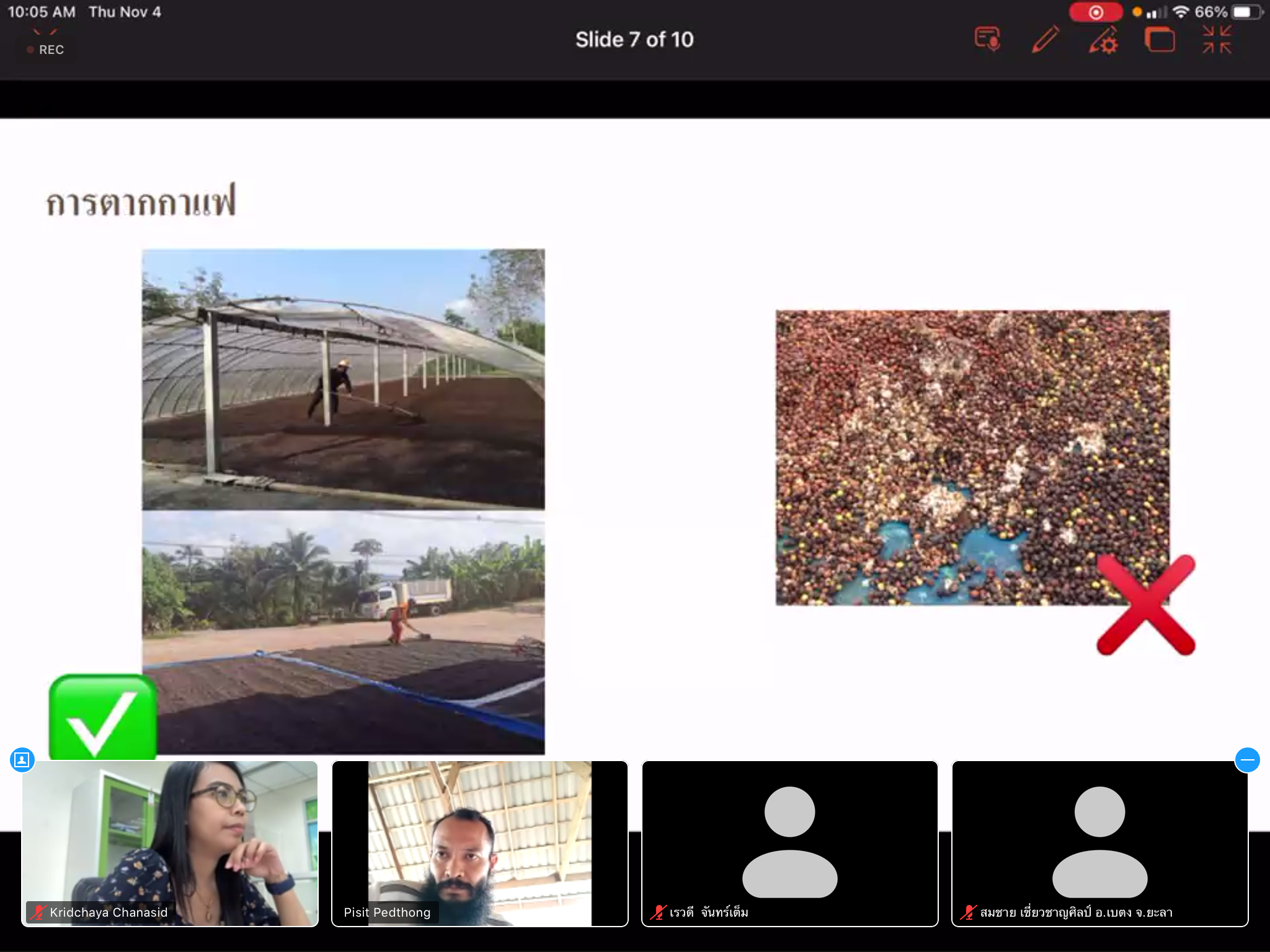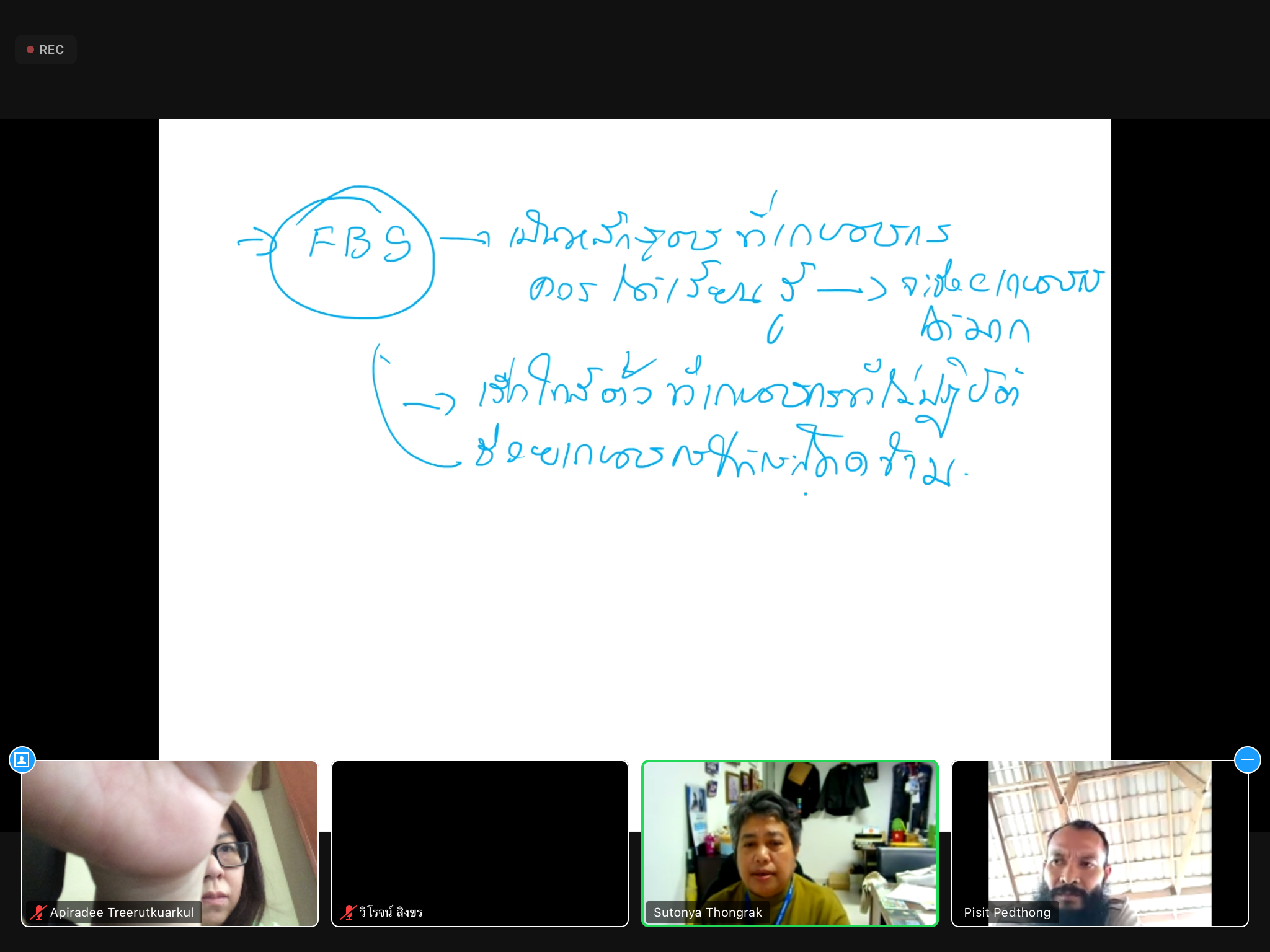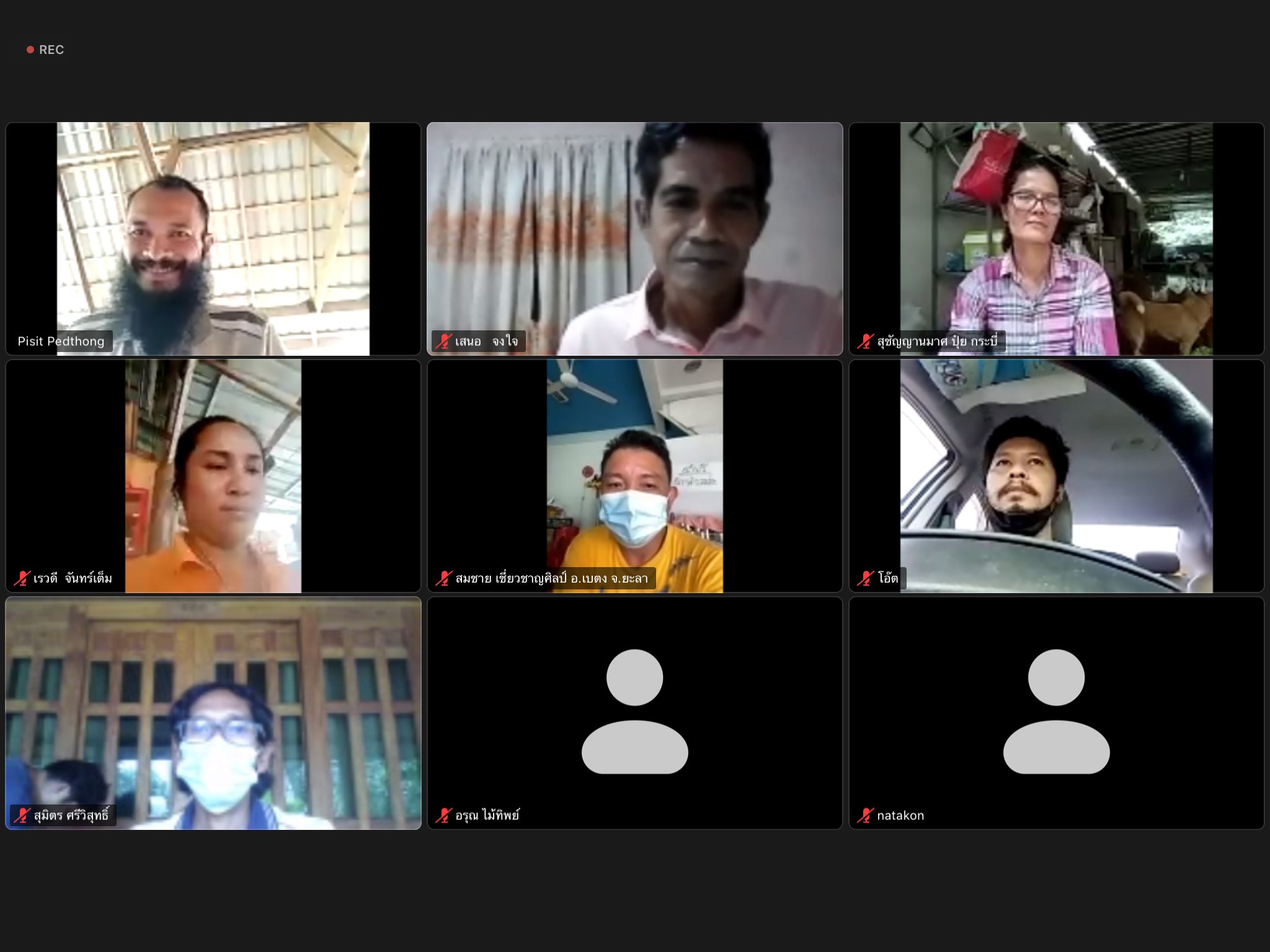The ongoing COVID-19 pandemic has continued to affect offline business and activities at all levels. To comply with the disease control measures and in conjunction with the Faculty of Economics, Prince of Songkhla University, the Improving Smallholder Coffee Farming Systems in Southeast Asia (Coffee+) project recently hosted an online workshop to enhance Robusta coffee smallholders knowledge and skills in agripreneurship and farm management.
The Farmer Business School (FBS) is one of the project’s key learning approaches to provide capacity development on the farm as a business and Good Agricultural Practices (GAP) to smallholder farmers and related stakeholders by equipping them with an entrepreneurial attitude, knowledge and skill for farm business management packed with best farming practices and the possibility to diversify income through intercropping.
A number of participants, both coffee smallholders and non-coffee farmers, along with agricultural extension officers from the Department of Agricultural Extension in southern provinces joined a series of two-and-a-half day workshops run by Faculty of Economics, Prince of Songkhla University during 2-4 November 2021. Details during each session were designed not only to enhance farmers’ abilities to manage their farms as a small business, but also help agricultural extension officers understand the importance of the entrepreneurship mindset. This allows both the agricultural extension officers and the farmers to learn how to make a plan, manage and optimise resources for cost-effective production that meets the requirement of the market in terms of quality and quantity through adoption of the learned FBS’s knowledge and skills and Good Agricultural Practices (GAP).
Pouchamarn Wongsanga, Director of the Coffee+ project in Thailand, said the FBS module was originally developed by GIZ for 350,000 smallholders in cocoa regions in West and Central Africa, and is now being applied in the 3 pilot Southeast Asian countries, namely Indonesia, Philippines and Thailand. The module was adapted to meet the Southeast Asia context and introduced to as many as 10,500 smallholder coffee farmers in the three countries. GIZ implemented the project in Thailand’s Chumphon and Ranong provinces. The areas are regarded as the country’s centre of Robusta coffee growing.
Suthonya Thongrak, Associate Professor and Director of Master Programme in Agribusiness, Department of Agricultural Economics, Prince of Songkhla University, who led the online training series, said the training builds on the proven GIZ Farmer Business School (FBS) approach to enhance the business knowledge of coffee farmers, thereby laying the basis for professionalized farm management. The FBS is originally designed for direct training, face-to-face. To keep core elements and key message of the training, the team had to adjust details of the module and the process for engaging and delivering the training through online sessions. The module comprises 12 chapters covering knowledge of:
(1) farm as a business
(2) basic farm planning
(3) managing a farm to produce enough and good quality product
(4) doing good business: money in-money out
(5) decision for more income
(6) seizing opportunities to diversify farm enterprises
(7) managing money throughout the year
(8) getting good financial services
(9) making more money with quality product
(10) benefits of membership of a farmer organization
(11) investment in replanting/rejuvenating and
(12) becoming an entrepreneur in practice.
Voices from Participants
Pisit Pedthong, smallholder farmer from Lam Hub district in Krabi province, said the workshop enabled him to learn about useful agricultural techniques to monitor coffee plant growth, how to increase productivity, and environmentally friendly pest-control methods. His family grows Robusta coffee on 10 of their 30-rai agricultural area.
Having been a smallholder coffee farmer for over 30 years, he believes the workshop should be separately categorised for beginners and advanced farmers to meet specific needs of farmers.
Thitima Charoonrat, an agricultural official in Surat Thani province who also joined the workshop, said the FBS modules learned during the online workshop were very useful for young generations of farmers. She always shares details of the FBS with smallholder farmers when going out into the field.
“Not only the online but also on-site training sessions should be introduced in the future so that the young farmers will be able to learn knowledge and skills essential for effectively continuing their families’ agricultural farming practices in the long run,” she said.

